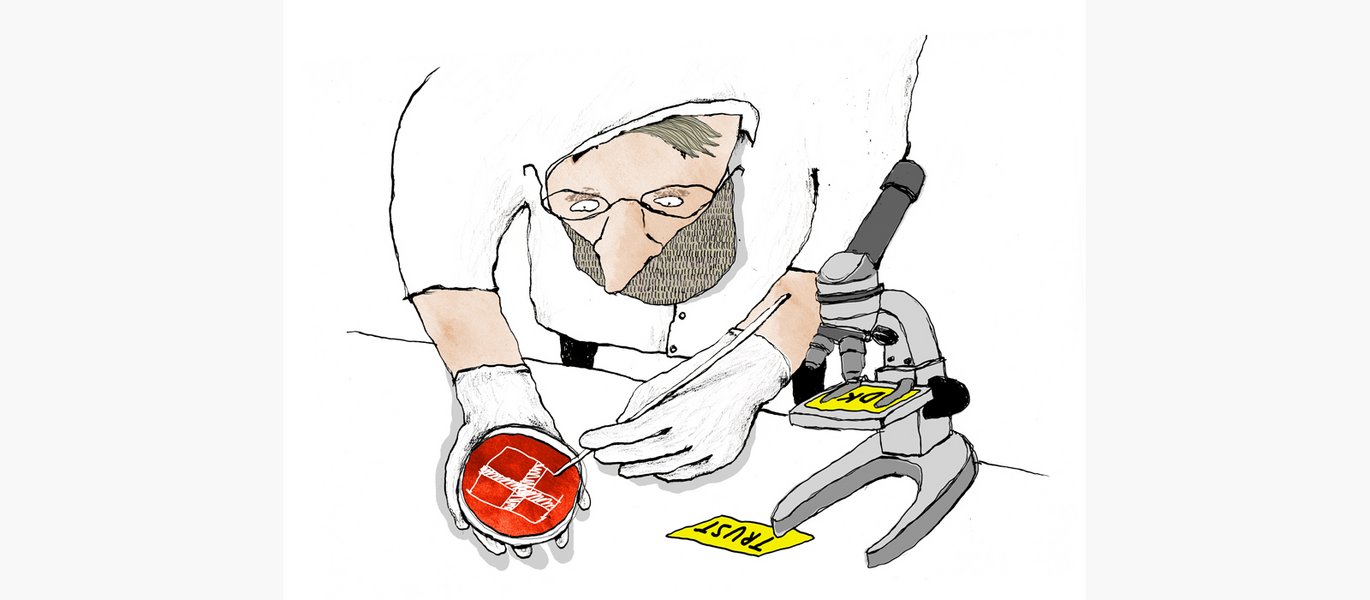Laboratory Denmark
By Gert Tinggaard Svendsen, professor of political science and author of the book “Tillid” (“Trust”)

Many people regard the Harvard professor Robert Putnam as the leading political scientist in the world today. In 2013 and 2014 he is to be Aarhus University’s Distinguished Visiting Professor; and he will also be the keynote speaker at this year’s MatchPoints Seminar in May, the theme of which will focus on social capital and current challenges to social trust and cohesion.
Briefly put, Putnam’s pioneering idea is that social trust is created via voluntary organisations. When people join groups voluntarily, face-to-face interaction will generate trust – which will then spread to society as a whole in the form of social trust.
So Denmark is an interesting laboratory for Putnam, because here he can study the Danish way of organising things in voluntary groups at close hand. One of the things that characterises Denmark is that when two Danes meet, they generally shake hands. But when three Danes meet they form an association. A culture of associations and clubs thrives in Denmark, and the Danes are also world champions when it comes to trust. Social trust is measured in terms of the proportion of the population that believes you can trust most other people. No fewer than 78 per cent of all Danes answer “yes” to this question in the latest SoCap survey. This is the highest score ever in any country. We Danes also trust Danish officialdom and our police, and we are happy to leave our babies asleep in their prams outside shops while we go inside.
According to Putnam’s logic, the Danish cooperative movement that became popular from the mid-1860s onwards can be regarded as one of the origins of social trust in Denmark. Here are some other examples of the Danish success story: voluntary organisations building sports halls, parents driving each other’s children around to various events, and the voluntary organisation of sports clubs in general. Voluntary organisations in Denmark make it harder to cheat other people because people meet every week to sing in choirs, play tennis and take part in other activities. So if you let people down, you’ll regret it eventually because your reputation will be in tatters.
Since the Second World War Denmark has consistently been one of the wealthiest countries in the world. And this is despite limited natural resources, a moderate level of education, and a system of high taxation and relatively generous social-security benefits which don’t necessarily encourage people to work harder. In the words of the Danish jazz pianist Leo Mathisen, “Take it easy, boy, boy. Let the others do the hard work for you.” Most Danes could actually use this as their guiding principle in life. They have the chance to be free-riders, but this is not actually a huge problem in Denmark because each of us contributes to the common good, trusting other people to do the same.
In the 1990s Putnam’s home country (the US) experienced a drastic decline in the degree of social trust. The proportion of the population believing that you could trust most other people has fallen from about 50 per cent to 35 per cent. Putnam believes that the reason for the sharp decline is that the post-war generations spend their spare time in front of the TV screen instead of meeting in the bowling hall whatever their age, religion and social class – the kind of meeting that generates social trust and cohesion.
According to Putnam, if you want to create or maintain social trust and reduce free-riding, the secret is to give plenty of space to voluntary organisations.
Read more about social trust and free-riding in Gert Tinggaard Svendsen’s books “Tillid” and “Mancur Olson”.
The MatchPoints Seminar is to be held at Aarhus University on 23-25 May. Read more at matchpoints.au.dk
Give us your views in Omnibus
If you would like to write a feature article, analytical article or personal column in Omnibus, all you have to do is contact the editorial staff on 87153619. You can read more at omnibus.au.dk

